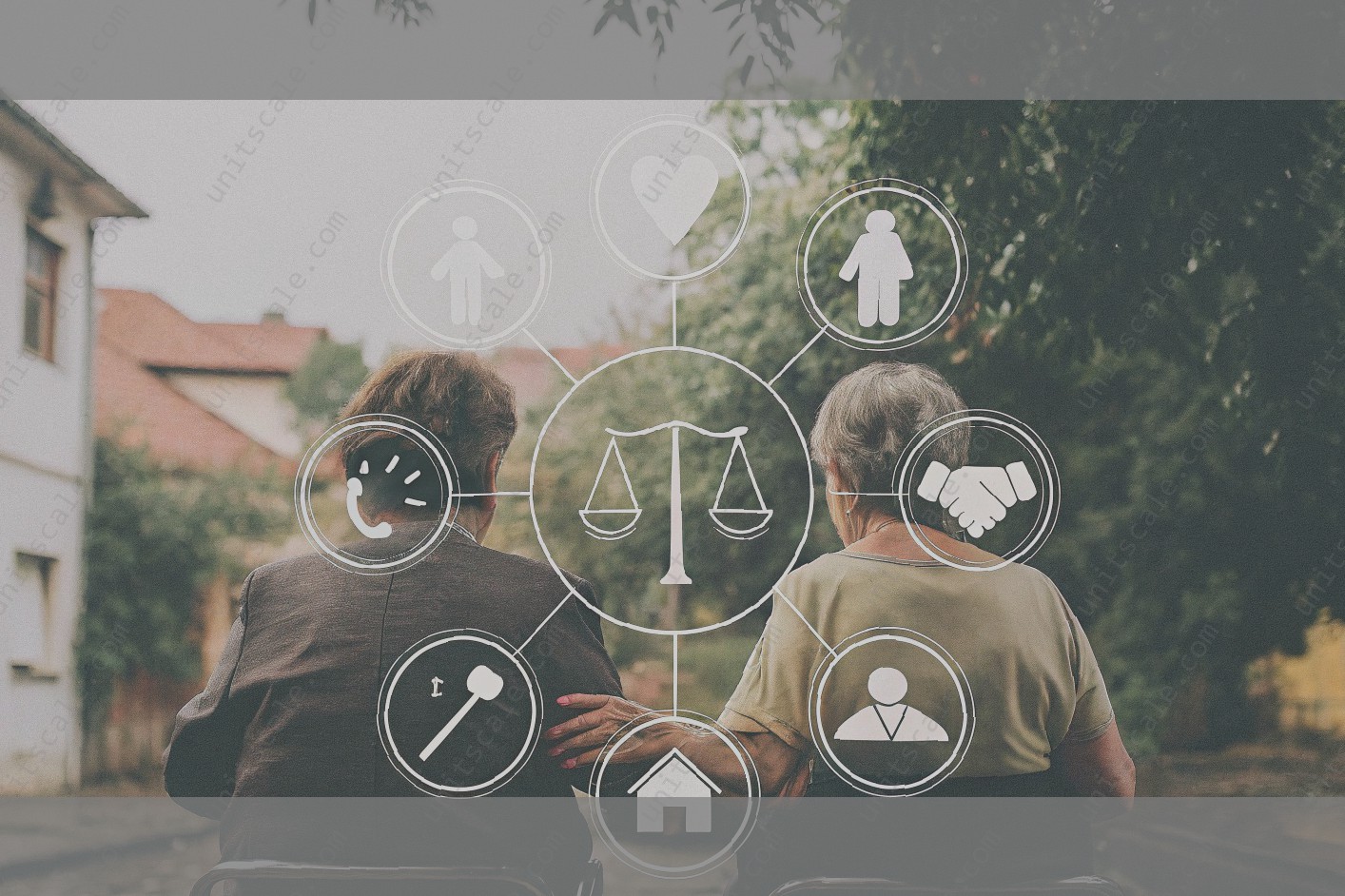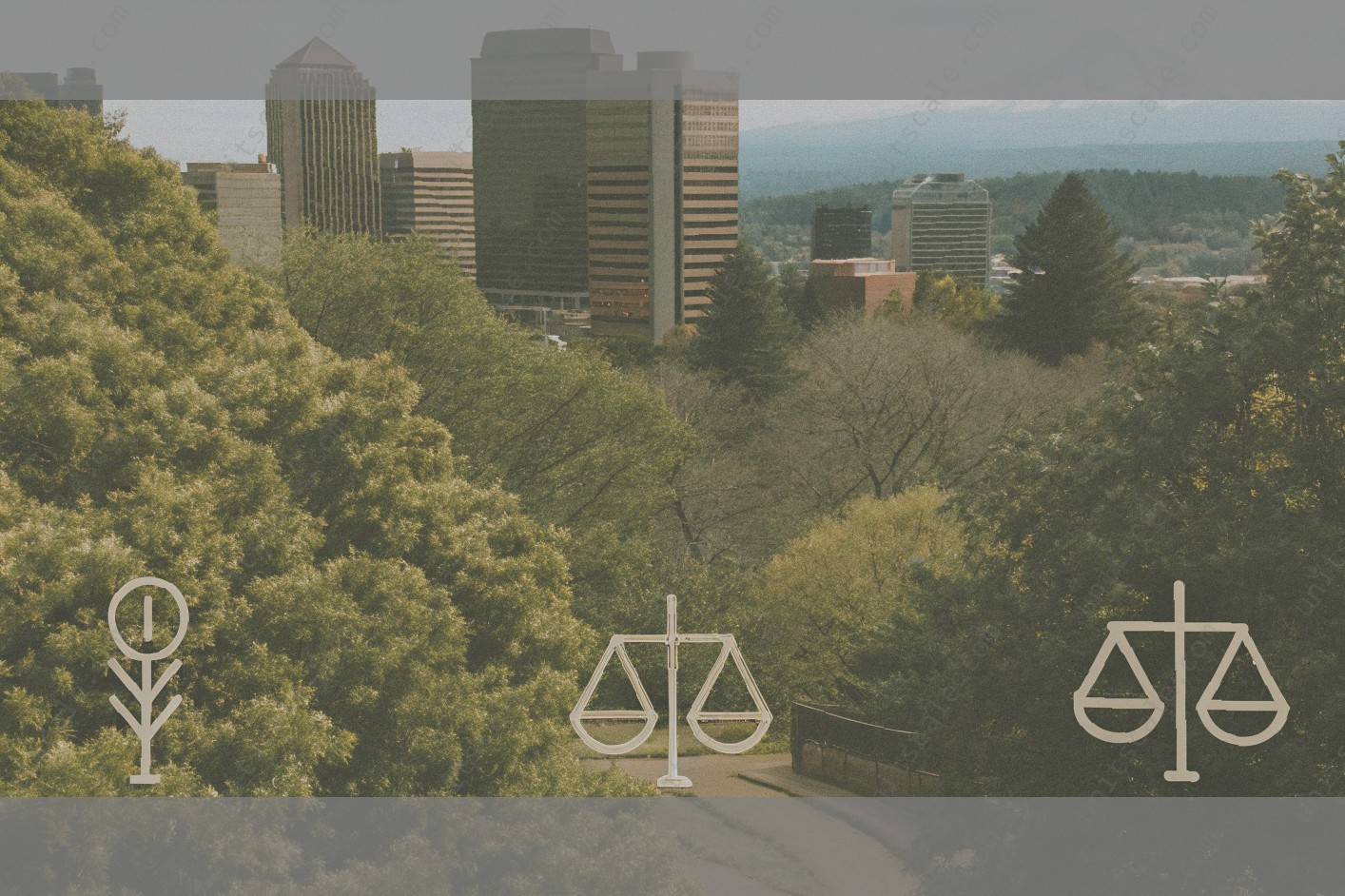What You Need to Know about Durham Legal Aid
Durham Legal Aid is a nonprofit agency that provides free civil legal services to residents of Durham County. The goal of Durham Legal Aid is to provide equal access to justice so that low income and disadvantaged Durham residents can protect their rights. The agency represents approximately 1,000 individuals or families each year . It focuses on the particular life priorities of its clients, which include health, safety and security, housing stability and economic security. Areas of law that Durham Legal Aid typically handles include family law (including domestic abuse cases), criminal record expungements, public benefits, consumer law, and service for non-English speakers including victims of domestic violence.

Durham Legal Aid: Who Can Apply?
In order to be eligible for legal aid in Durham, individuals must pass both the financial and jurisdiction criteria. The financial eligibility test requires that the applicant’s disposable income (after any non-mortgage, secured loans are removed from the total amount of the applicant’s income and expenses, to calculate the net income available) must be at or below the applicable income limit for the type of case being pursued (up to £1,085 per month, if you only have income from benefits, up to £734 per month if you work). The applicant must also not have more than £8,000 in disposable capital (savings, investments or equity in a property not subject to a secured loan) to be financially eligible for legal aid.
The jurisdiction criteria allows applicants to determine if their case falls within the scope of civil law and the area of law for which they would like to obtain legal aid. Immigration and asylum seekers, for example, are not covered by legal aid. Immigration, nationality and asylum claims are funded by the Home Office, if you are seeking asylum in the UK. Further details on the types of cases which legal aid covers can be found at www.gov.uk.
Available Services through Durham Legal Aid
Legal Aid of North Carolina in Durham provides a variety of services to legal aid clients, both individually and through community workshops in Durham and surrounding counties. The services available through Legal Aid of North Carolina – Durham include: family law services for domestic violence, child support and child custody, estate planning, guardian ad litem, juvenile delinquency, guardianship, and adult protective services, education and special education services, housing and foreclosure defense, human services for government benefits such as Social Security, Medicaid and disability, general civil litigation, Medicaid, Medicare and health care, safety services and domestic violence, personal injury or accident, public benefits, real estate and foreclosure, veterans benefits, worker’s compensation, youth outreach and advocacy, public transportation services, assistance with the Municipal Traffic Court, and disaster legal services.
Legal Aid of North Carolina – Durham works in coordination with other agencies and pro bono lawyers in the area to provide services to low income or disadvantaged people. Sometimes this means that a legal aid attorney could be in one county helping legal aid clients, and in another county at the same time helping other legal aid clients. Having legal aid attorneys able to step in when needed is a service that the providers of legal aid in Durham offer to the surrounding communities.
Applying for Legal Aid in Durham
Applications for legal aid in Durham can be completed online or in-person, depending on the individual’s preferred method. The LAA assesses applications as quickly as possible, but applicants may not hear back for two to three weeks after submission. Because of the lengthy process of determining eligibility and application approval, the LAA encourages people to apply for legal aid immediately upon deciding that they need assistance.
Documents required for the eligibility determination process for Durham legal aid include various supporting forms, documents and financial information. Applicants should have details ready regarding their income, disposable income, income-based tax credits, rent or mortgage payments, capital and childcare costs. Individuals should also have supporting evidence including a financial statement showing pay and savings for the last six months, an income statement from their employer, bank and building society statements, payslips for the last three months and rent and mortgage statements. Applicants can find the forms needed to complete the application process in Durham on the government website.
The Advantages of Utilizing Durham Legal Aid
The provision of legal aid services in Durham County is vital to ensuring that those who need legal assistance have access to the help they require. By providing support and legal representation to lower-income residents, legal aid makes an otherwise unattainable system accessible to all. People of all walks of life utilize this program to receive assistance with their legal needs. Having a reliable advocate in their community can be an invaluable resource for some, as is reducing the cost of representation for those in dire need.
A common misconception is that legal aid is only available for those charged with serious criminal offenses who cannot afford representation. In actuality, legal aid encompasses a wide range of legal needs. Law firms and legal aid societies routinely represent clients involved in matters of family law, landlord or tenant disputes, consumer protection investigations and transactions, and much more. Individuals and families seeking to take advantage of legal aid may range from the homeless seeking assistance with obtaining food stamps to military veterans seeking help on behalf of themselves or their family members .
Legal aid programs often make a significant impact in the lives of their beneficiaries. For example, by providing legal representation for contested Medicaid services and insurance claims to those who are unable to take on the insurance companies or receive the benefits they require, legal aid makes life-changing assistance possible. Elsewhere, access to affordable legal help has made a difference in the case of housing evictions. In some situations, legal aid can make the difference between people staying in their homes or being forced out onto the street. Legal aid often assists domestic violence victims from abuse, rape and other related crimes. Furthermore, intake officers frequently refer individuals and families to financial counseling services which can help them get their financial situations under control. In general, legal aid advocates can help clients find ways to deal with their problems so that they are not forced to face complications on their own. In many cases, Durham Legal Aid has provided life-changing solutions to clients in desperate need.
Durham Legal Aid: Facing Challenges On The Frontline
Despite the integral role that legal aid services play in the preservation of social justice, they constantly face a host of challenges. The most prevalent challenges include: limited funding, overwhelming demand, and resource allocation issues.
Funding for legal aid services is highly variable and often contingent on state and local government budgets. With the uncertainties of our current economic situation, the future of legal aid remains highly questionable. Although private donations and membership contributions can assist, these resources typically only carry the programs so far. Moreover, the majority of legal aid clients have very limited income and resources; thus, they often cannot contribute to sustaining the program. Other countries which also value access to justice have established governmental funding for public legal aid. However, here in the U.S., the "Lawyer Inquiries" from the February 2006 issue of Perspectives on Precedent both "demote[ed]" and "credit[ed]" Chief Justice of the Texas Supreme Court Wallace B. Jefferson with being an "advocate for the removal of governmental support for legal aid across the United States". The Texas State Law Review article notes that for every $1.00 that is spent there is a $5.00 to $12.00 return, which translates to a public benefit of $15.00 billion; thus, the Chief Justice is thought to have "favored defeating the Texas equal access to justice proposal after $19.1 million had been raised to fund full statewide court access" (the proposal would have provided public funding for the Texas Access to Justice Commission).
As one might imagine, large numbers of people tend to be in need of legal aid, but legal aid programs often have limited financial and human resources which prevents them from assisting everybody. For example, in FY 2012, the federal Legal Services Corporation (which funds more than 800 legal aid programs throughout the U.S.) was able to provide legal assistance to only 1,095,063 people, even though as many as 9,750,363 were eligible for federal funding. Similarly, a recent Houston Chronicle article indicates that government budget cuts have forced the South Texas Pro Bono Resource Center (STPRC) to discontinue providing services to the region’s low-income immigrants who are seeking asylum in the United States.
Even if funds are available, issues of geographic distribution remain. Certain areas tend to have a greater number of legal aid programs, while others do not. For example, out of 13 counties in North Carolina, Durham County has the most legal aid programs including, but not limited to, the NC Equal Access to Justice Commission, the Duke University School of Law Civil Justice Clinic, Legal Aid of North Carolina – Durham Office, and the Durham County Courthouse Self-Representation Project. Moreover, some programs provide certain services while others provide additional or different services.
Success Stories of Those Who Have Received Legal Aid
Within the broader community of beneficiaries that Durham Legal Aid works with, a number of individuals have experienced particularly meaningful and positive transformations after interacting with the organization. One such individual, Sarah, arrived in the office after an abusive relationship. She was penniless and homeless and was at risk of being put out on the street following the end of her eviction moratorium. Sarah’s attorney helped her get a no contact order against her ex partner, helped her secure rental assistance for the remainder of the month, and helped her find resources for emergency and transitional housing.
Another family who has benefited from Durham Legal Aid’s services for many years is the Ortiz-Zuniga family. Due to a loophole in the U visa process, Maria Ortiz was subject to deportation even though she was a victim of domestic violence . Her husband was abusing her and when she approached the police, they arrested her instead. Maria’s daughters went into foster care due to all the tumult surrounding her arrest. Fortunately, the staff at Durham Legal Aid pursued all possible legal options available to her family. Now, Maria’s domestic violence charges have been dropped and she is beginning to work on her U visa application again. She has regained custody of two of her three daughters and current staff members at Durham Legal Aid are helping them file for Special Immigrant Juvenile Status so they can return home.
Success stories like those of Sarah and the Ortiz-Zuniga family are what motivates the lawyers and staff at Durham Legal Aid each day. When they are able to have such a drastic impact on the quality of life for one or several individuals, their work is rewarded beyond measure.


